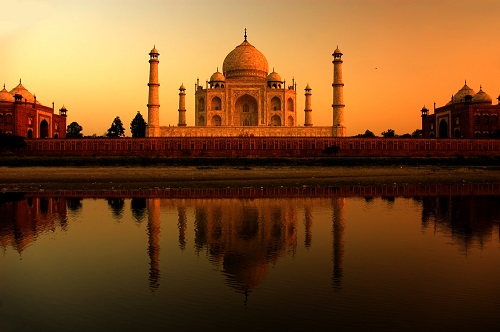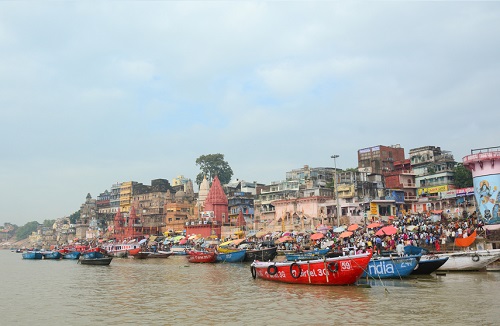India is a major tourist destination, and the diversity of the country’s landscape means that it can cater to a number of sporting activities. For example, there are various water sports on offer in coastal areas, such as Goa, including sailing, boating, river water rafting, kayaking, jet skiing, windsurfing and parasailing. Alternatively, you could visit the Himalayan north, where you can pursue activities like skiing and snowboarding – this is not a huge industry in India, but there are some very good resorts, including Gulmarg, Jammu and Kashmir. Whichever sport you choose to do, there are associated risks, so it’s important to make sure you have appropriate cover.
What cover is available for residents of India?
The public healthcare system offers free at the point of delivery universal care. However, in practice, most Indians end up using the private sector, in which quality can vary considerably, especially between rural and urban areas. Many expats prefer to take out international health insurance during their stay in India.
If you are engaging in sporting activities, it may be wise to opt for private cover, or perhaps even a specialised sports policy.
Your engagement with Indian public healthcare is likely to be in the case of an emergency. If you are hospitalised, your initial care will be free, but you may have to pay for additional ongoing treatment, and you will likely have to pay for this up front and in cash.

What cover is available for visitors to India?
If you are visiting the country as a tourist and intend to take part in sporting activities, it is advisable to have comprehensive insurance.
If you sustain an injury, you will need to contact your health insurance provider to check that your treatment will be covered under the terms of your policy. If so, then your provider may be able to pay for your healthcare treatment directly. However, you should check this with your hospital, as they may ask you to pay in cash and then claim the money back from your insurance company once you return to your home nation.
Note that there are time limits in place with most insurers for compensation claims. For example, you will not be able to retroactively claim compensation for an injury suffered many years ago.
If you are visiting India for a holiday, and booked your trip through a registered travel agent, you should be covered by existing legislation, and they will be able to advise you with regards to making a claim.
Check that your existing health insurance policy covers you for repatriation; many policies do not have a medical evacuation clause. You may also need to check that your policy has a clause that is dedicated to covering sports injuries, either as additional cover, or as specialist cover, for example water sports insurance.
If you opt for specialist cover, make sure that it includes the activities you are planning to do. Most companies will cover sporting activities to some extent, but the levels of protection can vary. Travel insurance policies may cover snorkelling and diving, for example, but will not cover sea kayaking. Most will cover:
• Swimming
• Surfing
• Stand-up paddle boarding
• Snorkelling
• Water skiing
• Rowing
Check that your specialised policy does not have personal liability clauses that exclude vehicles such as jet skis. Most travel insurance policies either do not include the following, or they have exemption clauses:
• Jet skiing – you must follow local rules relating to water safety
• Scuba diving – many policies will only cover you if you have an open water licence, are diving under the supervision of a licensed instructor, and do not dive below a specific depth limit (usually 130 feet)
• Sailing – you must stay within 10 to 12 nautical miles of the shore
• Yachting – you must be within 60 miles of a safe haven
• White water rafting – some providers will only cover grade one to three rapids, while others may cover up to grade five
• Fishing – some insurance providers won’t cover deep sea fishing or spear fishing
• Paragliding – this usually only covers tandem paragliding with a licensed instructor
If you are intending to ski in India, make sure that your medical insurance covers you for injuries on the slopes. You should be looking at a minimum of £3m in medical cover, and you should also ensure that your policy includes travel back to your home nation if required, as well as mountainside rescue. You will also need details of a 24-hour emergency helpline.
Make sure, too, that your policy contains a personal liability clause. This will cover you against legal action if you injure another person. A minimum of €1 million is advised.
If you are planning on engaging in any ‘extreme’ winter sports, such as heli-skiing, check whether this is covered by your policy.
Finally, make sure that any private insurance includes reference to any pre-existing conditions.
Average costs for a week’s winter sports coverage will depend on who’s applying. See some example prices below:
• Individual in their mid 20s: £8 – £79
• Couple in their early 30s: £13 – £133
• Family of four (children aged eight and 12): £19 – £239
• Couple in their early 60s: £24 – £140
Specialist policies can allow you to ski off-piste. Ski Club offers a policy for £130 annually, to cover a 35- to 69-year-old for up to 45 days’ skiing a year. They offer this for £210 to cover a couple and their children. Some insurers set a cut off date if you are in your 70s.

Where can I seek treatment in India?
India has a range of private clinics, which use either, or both, traditional and Western medicine. There are a number of chiropractic and osteopathic clinics throughout the country. In Mumbai, Kokilaben Hospital has an Advanced Sports Medicine Centre with an outreach clinic, which employs physiotherapists, biomechanists and sports scientists. Delhi has a number of clinics with trained personnel, including physicians and surgeons, veteran athletic trainers, sports and athletic coaches, and physical therapists.
How much will treatment cost?
You will find that treatment costs in India are substantially lower than in Western nations.
For example, physiotherapy in India can cost from Rs 250 to Rs 1500 (£2.60 to £16) per session. A consultation with an osteopath will cost less than £40. A spinal rehab session will cost between £19 and £25. Back pain treatment costs range from £16 to £32.
How much could I claim?
How much you can claim will depend on the nature of your injury and the time and expertise required to treat it, but for a minor to severe leg injury, you would be looking at compensation of up to £214,660. A minor to severe ankle injury would mean compensation of around £10,000 to £53,000. A minor to severe back injury would mean compensation in the region of £1860 to £122,500. And a minor head injury would mean compensation between £1730 and £9560.

